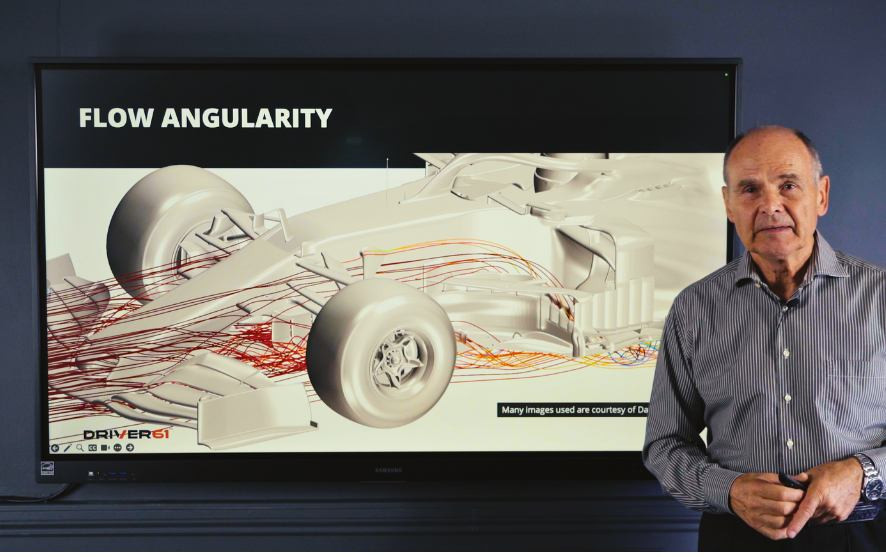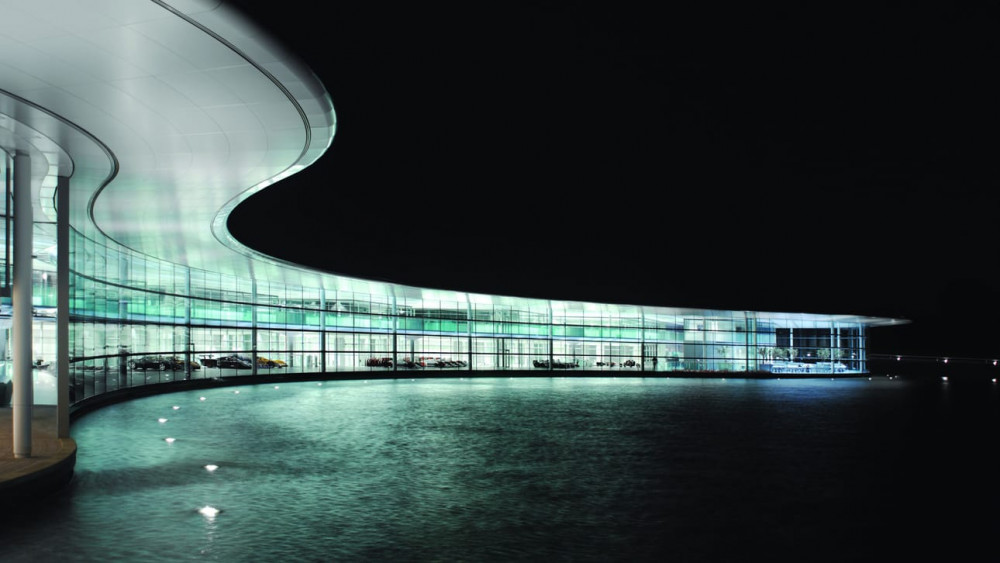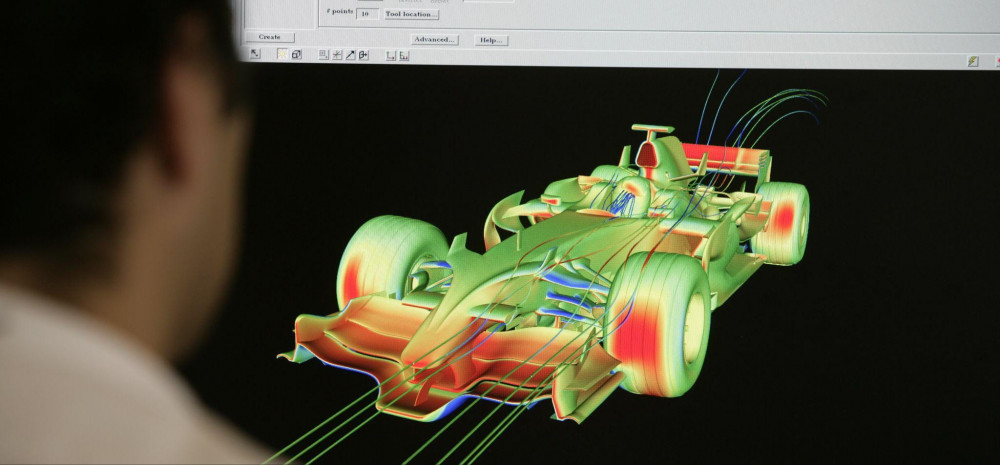As the world of motorsport continues to evolve, so too does the path to a successful career in this exciting industry.
Recently, I had the opportunity to sit down with Dr Kieran Reeves, Director of Motorsport at the National Motorsport Academy (NMA), to discuss how their innovative online degree programmes are shaping the future of motorsport education and careers.
Listen on Spotify or Apple Podcasts, or, watch the video below.
An Engineering Degree Will Boost Your Motorsport Career (FluidJobs Podcast)
Dr Reeves, with his extensive background in motorsport engineering and education, offers his perspective on the intersection of academic study and front line, practical experience in the in the paddock.

With a PhD focused on hybrid technologies and vehicle dynamics, and hands-on experience as a Team Manager and Chief Race Engineer for GT racing teams, Kieran is well-positioned to lead aspiring motorsport professionals.
Can you tell us a bit about the National Motorsport Academy and what makes it unique?
"We're quite unique, or we are unique," Kieran begins. "We deliver degrees, motorsport degrees, motorsport engineering degrees in particular, to students that are all online."
The NMA offers the world's first online Bachelor's and Master's Motorsport Degrees, designed specifically for those already working in the industry. Their offering allows students to balance their studies with their existing employment, where usually the student is employed in a similar engineering, marketing or Business administration field but happen to be looking to transition to Motorsport.

"What that means is all the students are working in the motorsport industry or their day jobs, and then they can go onto our Virtual Learning Studio and meet up with their tutors in a one-to-one capacity whenever they wish to," Kieran explains. "All the content of the course is on the VLS, so they can log in evenings, weekends, anything around their job."
This flexibility is crucial for professionals who can't leave their work to attend traditional university courses or participate in block release programmes. It allows them to study for a degree while maintaining their current positions, accommodating the realities of mortgages, family commitments, and career progression.
Who are your typical students, and what are they looking to achieve?
The NMA caters to a diverse range of students, but Kieran notes that their demographic is slightly different from traditional universities. "On average now, I think currently our age group is around 30," he says. "But we tend to have students from 25 plus."

These students come from various backgrounds within motorsport, ranging from grassroots and national championships to World Endurance, Formula 1, and World Rally. Some are also transitioning from related fields like automotive or aerospace engineering.
"What it usually is, is people who are trying to get promotion within their companies," Kieran explains. "Especially are the guys who are working in Formula 1 and World Endurance - they want to move up to higher levels throughout a Formula 1 team, and they can't do that without a degree."
For others, particularly those working in national championships or lower levels, the goal is to transition into bigger teams or progress into world-class series like World Endurance, Formula 1, or British Touring Cars.
How important is practical experience in motorsport, and how does the NMA address this?
Kieran emphasises the critical nature of hands-on experience in the industry. "The main thing is as well is to kind of decide relatively early what you love," he advises. "What kind of race series do you love, what would you like to work in?"

He suggests starting with national championships and getting a foot in the door with teams, even if it means volunteering for weekends. This practical experience is invaluable for gaining knowledge and developing skills that complement academic study.
The NMA's programmes are designed to work alongside this hands-on experience. Students can immediately apply what they're learning to their day-to-day work, creating a symbiotic relationship between theory and practice.
What advice would you give to someone looking to break into motorsport?
Kieran's advice is straightforward: "It shouldn't be something that everyone's scared of or thinks automatically it's a very hard industry to get into."
He suggests looking at any racetrack, especially in the UK, and seeing the various race series happening over the next few months. "Go along, talk to people, offer your services for free," he advises.
"Take a CV along with it, and as long as you've got practical skills or you're willing to learn and you want to help out for free, don't see it as like a motorsport summit you'll never get to. It's available for everybody, and there's always somebody who needs help."
This approach aligns with the experiences of NMA graduates like Noah Monette, a 20-year-old BSc (Hons) Motorsport Engineering student from Ontario, Canada. Noah's passion for Formula 1 and endurance racing led him to the NMA, where he's been able to combine his studies with practical experience in sim racing events.
How does the NMA cater to the global nature of motorsport?
The NMA's online format allows it to cater to students from around the world. Kieran notes that different regions often focus on various motorsport disciplines.
"Australia obviously tends to go for the V8s and that kind of route," he explains. "America's already well established, but kind of we do get a lot of the African countries going down the Rally route."
He also mentions the growing motorsport scene in the Middle East, with more racetracks being built in the region. This global perspective is reflected in the NMA's student body, providing a rich, diverse learning environment that mirrors the international nature of the motorsport industry.
How is the motorsport industry evolving, and how does the NMA prepare students for these changes?
Kieran highlights the increasing importance of computer engineering and software in motorsport.
"What a lot of people do when especially when I talk to students of kind of the 16 to 18 year old age range, they think motorsport is just the pit lane, working on cars in the pit lane," he explains. "But there's all the other people who are back at factories designing. You know, you've got computer engineers now, computer software engineers, there's a plethora of jobs within autosport, motorsport now."
The NMA's curriculum reflects these industry trends, incorporating modules on simulation and analysis, as well as more traditional aspects of race car design and preparation. This holistic approach ensures that graduates are well-prepared for the multifaceted nature of modern motorsport.
What sets NMA graduates apart in the industry?
The unique blend of academic study and practical experience that NMA students gain sets them apart in the industry. As Kieran notes, "To have the practical skill and the mechanical knowledge will aid you in the future, especially if you're even going into CAD. Understanding how something operates or even how it bolts onto the car is great when you're designing something new."

This approach aligns with the experiences of NMA students like Michael Skinner, a BSc (Hons) Motorsport Engineering student currently on Module 9b: Aerodynamics. Michael's journey in motorsport began during his secondary school years, working as a shop intern for an American Le Mans series team. Now, with nearly two decades of IT experience under his belt, Michael continues to pursue his passion for motorsport, co-driving in the World Racing League (WRL) Series with the same team he interned for years ago.
Michael's story exemplifies the diverse backgrounds of NMA students. "I've been a sportscar and endurance racing fan my whole life," he shares. "The racing family that took me in then ended up racing in IMSA and SRO years later, and I've been a crew member performing wrenching and data duties."
His experience at NMA has been challenging yet rewarding. "Even if you've been in motorsport for decades!" Michael notes, emphasizing that there's always more to learn in the field of motorsport engineering. His favourite module so far has been Vehicle Dynamics & Data Acquisition, which allowed him to apply his real-world experience while learning new techniques. Currently tackling the Aerodynamics module, Michael recently attended the 24 Hours of Daytona, using the opportunity to gain inspiration for his own designs as part of his coursework.
Michael's story illustrates how the NMA's programmes can complement and enhance the practical experience of those already working in the industry, providing a pathway for passionate individuals to deepen their knowledge and advance their careers in motorsport.

The National Motorsport Academy is at the forefront of a new approach to motorsport education, one that recognises the importance of both theoretical knowledge and practical experience. By offering flexible, online degree programmes, the NMA is opening doors for passionate individuals around the world to advance their careers in this exciting and dynamic industry.
Whether you're already working in motorsport and looking to climb the ladder, or you're hoping to make the transition from a related field, the NMA's programmes offer a unique opportunity to gain the qualifications and knowledge needed to succeed. As Kieran Reeves emphasises, with dedication, practical skills, and the right education, a career in motorsport is within reach for those willing to put in the effort.
The future of motorsport is bright, and with institutions like the NMA paving the way, the next generation of motorsport engineers and professionals are well-equipped to take on the challenges and opportunities that lie ahead.




